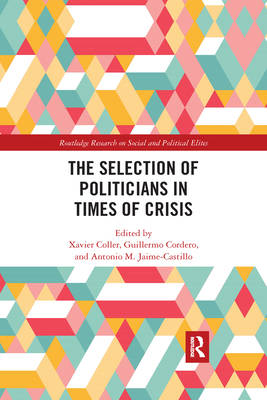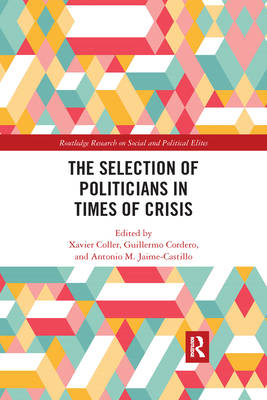
- Afhalen na 1 uur in een winkel met voorraad
- Gratis thuislevering in België
- Ruim aanbod met 7 miljoen producten
- Afhalen na 1 uur in een winkel met voorraad
- Gratis thuislevering in België
- Ruim aanbod met 7 miljoen producten
The Selection of Politicians in Times of Crisis
Omschrijving
Selecting candidates for elections is a major goal of political parties and a major function of political regimes in democratic systems. With the negative effects of the economic crisis being seen to translate into changes in voting patterns, and citizens using elections to punish parties in government for their roles in economic mismanagement or lack of response to the global economic crisis, a broad examination is required.
This book is presented as the first comparative study of the effects of the political crisis on candidate selection covering a large number of countries. Using an integrated framework and unified strategy, it examines how new relevant political actors are really implementing participative ways of candidate selection, whether they are being innovative in their political environments and the extent to which traditionally mainstream parties are changing selection procedures to have more open and inclusive mechanisms as part of internal, or intra-party, democracy. The book illuminates these issues through empirically driven chapters explaining changes in the way candidates for parliaments are selected in countries where new parties have emerged and consolidated, or where traditional mainstream parties have adopted new mechanisms of selection affecting (if not challenging) traditional politics. Additionally, therefore, this work will serve as a response to some current debates in the discipline on the consequences of the democratization of party life, relating political participation and representation.
This text will be of key interest to scholars and students of political parties, organizational change, social and political elites and more broadly to comparative politics and sociology.
Specificaties
Betrokkenen
- Uitgeverij:
Inhoud
- Aantal bladzijden:
- 288
- Taal:
- Engels
- Reeks:
Eigenschappen
- Productcode (EAN):
- 9780367591427
- Verschijningsdatum:
- 30/06/2020
- Uitvoering:
- Paperback
- Formaat:
- Trade paperback (VS)
- Afmetingen:
- 155 mm x 236 mm
- Gewicht:
- 358 g

Alleen bij Standaard Boekhandel
Beoordelingen
We publiceren alleen reviews die voldoen aan de voorwaarden voor reviews. Bekijk onze voorwaarden voor reviews.











